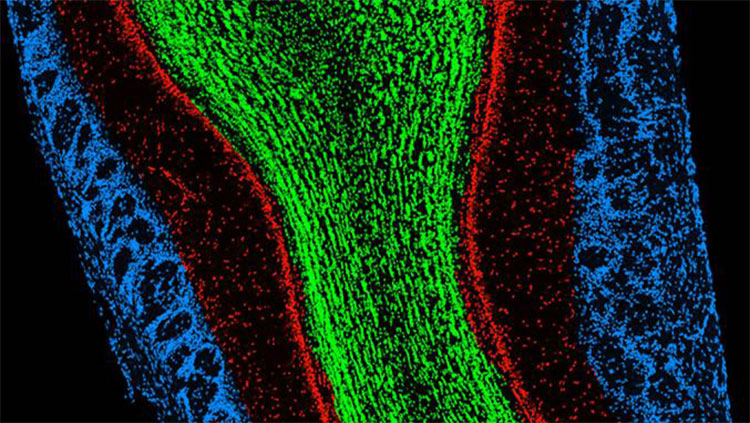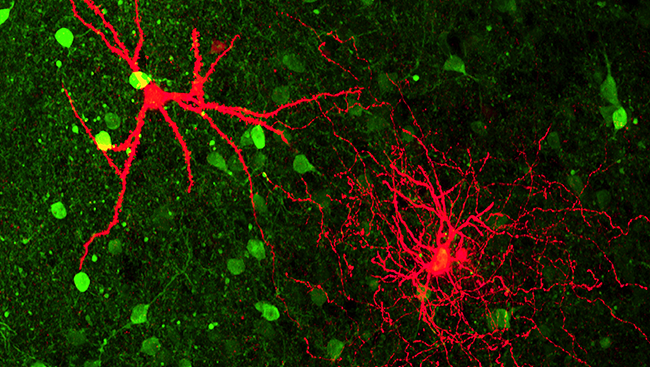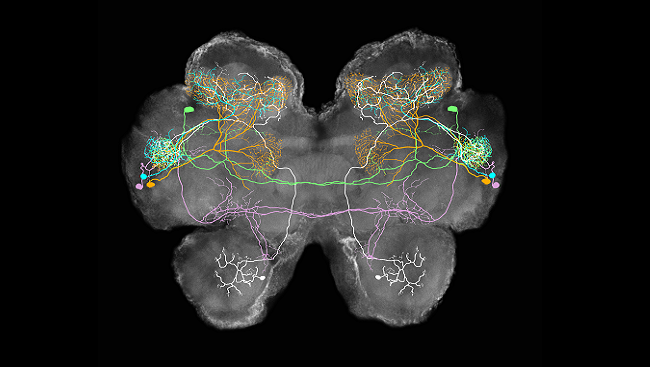Congenital Anosmia
- Published18 Oct 2013
- Reviewed18 Oct 2013
- Source BrainFacts/SfN
Every day, you smell many things, like freshly baked cookies, stinky shoes, or smoke from a nearby fire. Have you ever wondered what life would be like without the sense of smell? Travis Grenier, film student at Full Sail University, teaches about this rare condition called congenital anosmia and explains how the brain processes smell. This video was both the first place and People's Choice winner for the 2013 Brain Awareness Video Contest.
CONTENT PROVIDED BY
BrainFacts/SfN
Transcript
J: My name's Josh, and this is my special friend Travis.
T: Hi there.
J: Travis is special because he was born with only 4 out his 5 senses.
T: That's right, I was born without a sense of smell.
J: When Travis first told me he couldn't smell, I didn't really believe him.
T: Yeah, he kept testing me to see if I was lying.
J: Well what would you have done? It's not exactly "normal".
T: Yeah well, after a few attempts to get a reaction out me, I think I proved I wasn't faking it.
J: That's for sure. But after I figured out he wasn't lying, I started to get curious about what made him different than everyone else. So I did what everyone does when they don't know an answer-
T: He Googled it.
J: I found out that Travis' lack of smell is a very rare condition called congenital anosmia - that's "A-nos-me-uh". Anosmia is the inability to perceive odor and Congenital simply means "From birth". Anosmia might not be as crippling as similar disabilities like being deaf or blind, but it can be dangerous not knowing if something's burning or if food has gone bad.
T: Yeah, kinda stinks when the dog let's you know you smell bad. So there's something wrong with my nose, right?
J: Well as I researched further I realized that Travis' problem stems from his brain…(WS) I always knew there was something wrong with your brain <Smack!>
T: Hey, I remember from one of my high school Biology classes that the body's sensory information travels through the Thalamus-
J: …Didn't you fail Biology?
T: Shut up – you're in middle school - do you know what the Thalamus is?
J: I'm 12 and a half years old, of course I know what the Thalamus is. The Thalamus is a part of the brain located above the brain stem next to the cerebral cortex. And you're right, it does process most of the body's sensory information. The thalamus relays sensory and motor signals to the cerebral cortex along with regulating consciousness, sleep, and alertness.
T: Ha! I told you I was smart.
J: Let me finish. The Thalamus processes all sensory information with the exception of the olfactory system.
T: What do I care about an old factory?
J: Olfactory, not "old factory" genius. The olfactory system is the system that controls your sense of smell.
T: duhh!
J: The olfactory system starts with the Brain's command to sniff. A smell, tiny little volatilized chemical compounds, travel into the nose where it is picked up by sensory receptors. These receptors then send information to the olfactory bulb – here – and is then passed on to the olfactory cortex – here. All this is eventually recognized by the Frontal Cortex and that's how us "normal" people recognize smell.
T: So you're saying I have something wrong in this general region? <point to head>
J: Actually, yes. Doctors and Scientists still know very little about Anosmia and are still far from a cure – sorry - But what they do know is that somewhere on this road between your nose and frontal cortex this information is being lost or maybe it's never picked up in the first place.
T: Great, so this was all for nothing?
J: Not exactly, I got to prove that there is something wrong with your brain…
T: <unenthused> ha ha
J: The most important thing about anosmia is awareness: Now that you're aware what's wrong, you can take steps to prevent dangerous situations, like having someone sniff your food if you're unsure it's safe to eat and installing smoke detectors.
T: And hopefully now you'll (audience) be aware of this disease, so if a friend comes to you and tells you he or she can't smell you won't put dirty socks in their face.
J: Exactly.
T: Well I hope you learned something today and remember, anosmia stinks, but if you're someone like me who can't smell, you're not alone. Join the Congenital anosmia group on Facebook to talk with others anosmics around the world that understand exactly what you're going through.
J: And for more information about the brain visit Brainfacts.org. Thanks for watching!
Also In Smell
Trending
Popular articles on BrainFacts.org

















